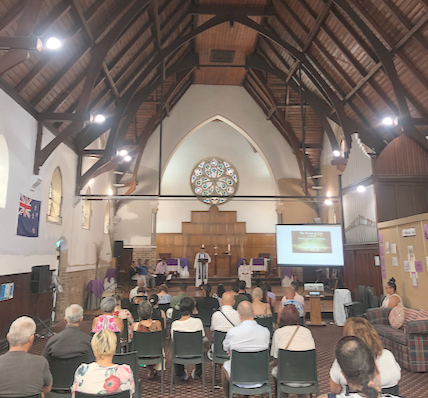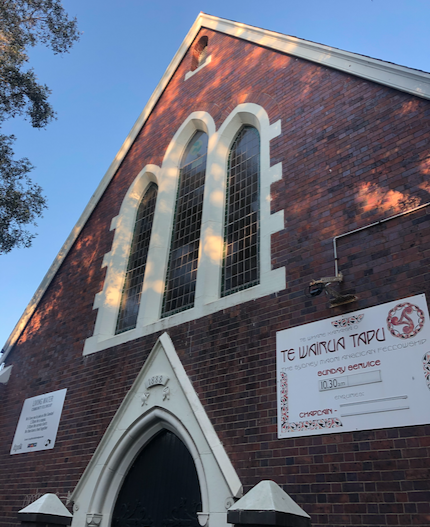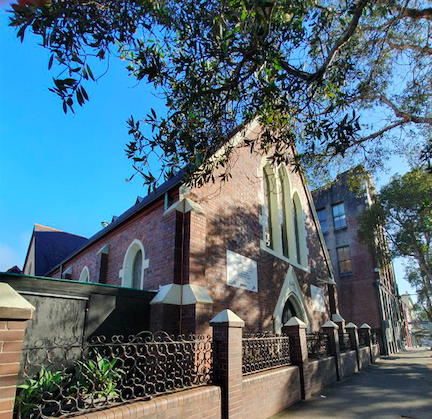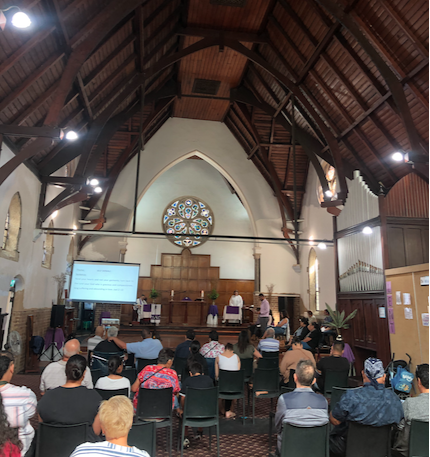
Self-Denial!
Readings:
Genesis 17:1-7, 15-16
Psalm 22:23-31
Romans 4:13-25
Mark 8:31-38
Colour: VIOLET
Sentence:
Rend your hearts and not your garments; turn back to the Lord your God who is gracious and compassionate, long suffering and abounding in love. Joel 2: 13
Collect:
God of Abraham and Sarah, of Moses and Elijah, you made a covenant with your people; draw us into covenant with you, that we may see your glory, sing your praises, and see your reign on earth as well as heaven. Through Jesus Christ our Liberator, who is alive and reigns with you, in the unity of the Holy Spirit, one God, now and forever. Amen
Tena koutou katoa e te whanau o Te Wairua Tapu.
Last Sunday our korero was all about being in the wilderness and facing temptations. We discovered that temptations are not about our behaviour, breaking rules, or being bad. God doesn’t tempt us to see if we will pass or fail. Temptations are for our benefit, not God’s. They are a part of our salvation. We experience wilderness temptations to discover that our most authentic identity is being a child of God and our only real home is with God.
Our theme today is self-denial.
In our gospel reading from Mark, we find Jesus in a discussion with his disciples and maybe Peter didn’t say anything we haven’t thought of or even wanted to say. it’s just that Jesus has a very different understanding of discipleship than what most of us probably want. When someone else’s reality and vision begin to conflict with and overtake our own we rebuke them. We growl them. We either take them apart in front of others or we take them aside to enlighten them, help them understand and show them the error of their ways. That’s all Peter did with Jesus.
If we are really honest with ourselves, we’ve at some point, disagreed with Jesus, asking why he doesn’t do what we want? Why won’t he see the world our way? It all seems so clear to us.
- If he can cast out the demons surely he could silence the voices that drive us crazy.
- If he can heal Peter’s mother in-law why not those we love?
- If he can cleanse the leper why does our life sometimes leave us feeling unclean and isolated?
- If he can make the paralytic walk why are so many crippled by fear, dementia, or addiction?
- If he can calm the sea surely he could calm the storms of our world. Yet they rage on; violence, war, poverty, viruses, natural disasters.
- If he can feed 5000 people with a few fish and pieces of bread why does much of the world to go to bed hungry?
I know people who have lost faith and left the Church over these issues. These are our rebukes of Jesus. He’s not being or acting like we want him too. Sometimes his words challenge and shock us. Maybe we’re not so different from Peter.
Just a few verses before today’s gospel, Jesus asks, “Who do you say that I am?” Peter names him as “the Christ,” the Messiah, the Anointed one of God. Peter is right and yet he also doesn’t get it.
Peter has an image of what the Messiah is supposed to do and who the Messiah is supposed to be. We all have our own images and wishes about who Jesus is and what he should do. All is well when Jesus is casting out demons, healing the sick, preventing death, and feeding the multitudes. We like that Jesus. We want to follow that Jesus. He’s our Lord and Saviour.
However, Jesus won’t conform to our images of who we think he is or who we want him to be. Instead, he asks us to conform to who he knows himself to be: the one who “must undergo great suffering, and be rejected by the elders, the chief priests, and the scribes, and be killed, and after three days rise again.” He sets a choice before us. It’s a choice we each have to make. Again and again the circumstances of life set that choice before us.
We either choose ourselves and deny Jesus or we deny ourselves and choose Jesus. “If any want to become my followers,” he says, “let them deny themselves and take up their cross and follow me.” Self-denial is the beginning of discipleship.
I reckon that’s not what Peter had in mind when Jesus said, “Follow me and I will make you fish for people.” I wonder if that’s what you and I had in mind when we came to church today, or what we think about when have our babies baptised, or how often we understand and practice our faith as daily self-denial. “Follow me and I will make you fish for people.”
Jesus’ words are hard and his way is extreme. Surely God didn’t make a covenant with his people and bring them out of Egypt into the promised land only to say, “Now let it all go.” The Messiah is supposed to offer security, protection, and put Israel back on top.
Faith in Jesus, Peter is learning, is not about the elimination of risks, the preservation of life, and the ability to control. Instead, Jesus asks us to risk it all, abandon our lives, and relinquish control to God. That’s what Jesus is doing and he expects nothing less of those who would follow him.
The way of Christ, self-denial, reminds us that our life is not our own. It belongs to God. It reminds us that we are not in control, God is. Our life is not about us. It’s about God. There’s great freedom in knowing these things. We are free to be fully alive. Through self-denial our falling down becomes rising up, losing is saving and death is resurrection.
As long as we believe our life is all about us, we will continue to exercise power and mana over others, try to save ourselves, control our circumstances, and maybe even rebuke Jesus. But Jesus rarely exercised power over others or tried to control circumstances. He simply made different choices. Self-denial is not about being out of control or powerless. It’s about the choices we make.
Jesus chose to give unconditionally in a world that takes, to love in a world that hates, to heal in a world that hurts, to give life in a world that kills. He offered mercy when others sought vengeance, forgiveness when others condemned and compassion when others were uncaring. Jesus trusted God’s abundance when others said there wasn’t enough. With each choice he denied himself and showed God was present.
At some point those kind of choices will catch the attention of and offend those who live and profit by power, control and looking out for number one. They will not deny themselves. They will respond. Jesus said they would. He knew that he would be rejected by the elders, chief priests, and scribes. It happens in every age for those who choose the path of self-denial. When it happened for Jesus he made one last choice. He chose resurrection over survival. What choice will you make today? Amen
Archdeacon Kaio Karipa
The Venerable Kaio Karipa
The Sydney Maori Anglican Fellowship Church of Te Wairua Tapu
www.tewairuatapu.com.au
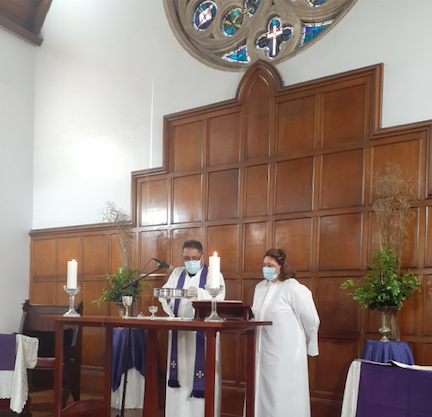
New Covid conditions for our First Holy Communion Service since March 2020

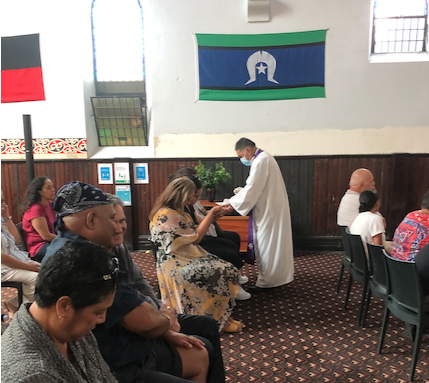
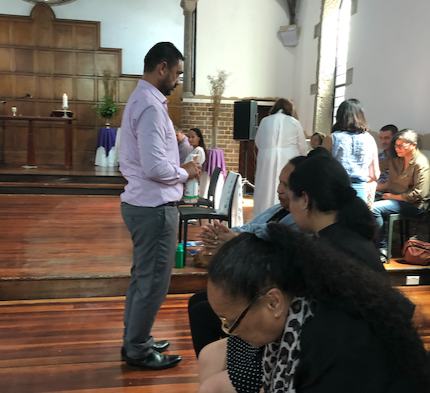
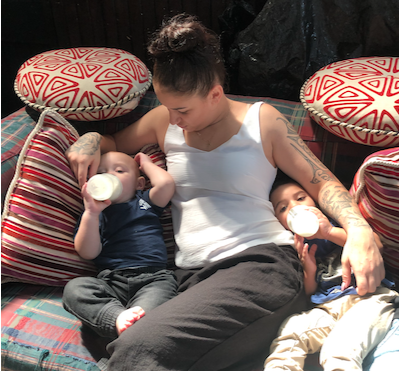
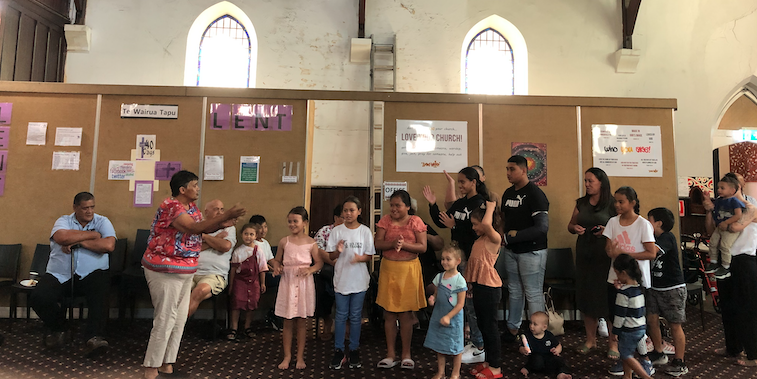
Photos: 28 Feb 2021

